The United Nations’ World Water Day 2020 emphasizes the importance of the topic of “Water and Climate change”
The changing climate is impacting the world, its societies and ecosystems, mainly through water. This means the climate crisis is basically a water crisis.
Today, on the World Water Day 2020, the UN World Water Development Report 2020 will be presented. The report concludes that climate change leads to reduced fresh water availability and deteriorated water quality. Climate change may result in more severe droughts. The rising temperatures increase the melt end evaporation of important fresh water resources such as snow and ice bodies, soil and groundwater as well as lakes and reservoirs.
Because it is the World Water Day 2020 and the UN Water Action Decade, we want to highlight the importance of sustainable water management to reduce the effect of climate change on the global population, food security and ecosystems via mitigation and adaption measures. Globally, future sustainable water challenges are seen in the development of climate neutral agriculture and the enhanced used of waste water for crop irrigation.
The International Centre for Water Resources and Global Change contributes to these global water challenges in its daily work. Proper water quality is required for the use of human sanitation, irrigation and ecosystems. The ICWRGC contributes to the Sustainable Development Goal 6 “Clean water and Sanitation for all”. Here, the GEMS/Water Data Centre with its global freshwater quality database GEMStat, which is located at the ICWRGC, provides global data on water quality, facilitating studies on water quality worldwide and contributing to SDG 6 monitoring and reporting.
On a regional basis, the ICWRGC strengthens initiatives on transboundary cooperation between countries that depend on the same river basin. We work closely together with the German Federal Institute of Hydrology (BfG) on projects on large European transboundary rivers like the Rhine and the Danube and transfer the knowledge into our UN network.
On a global perspective, the ICWRGC coordinates the Global Terrestrial Network – Hydrology (GTN-H) under the auspices of the Global Climate Observing System (GCOS) and the WMO. Here, we collaborate with the leading water data centres to provide information about the global water cycle, available water resources and how these are impacted by climate change.
The impact of climate change on the global fresh water reservoirs is inevitable. We should act now, and we should act together. According to the World Water Day 2020 slogans: We cannot afford to wait! & Everyone has a role to play!
PS: Did you know? Just one day after the World Water Day, the World Meteorological Day takes place every year on March 23rd and commemorates the coming into force of the Convention establishing the World Meteorological Organization on March 23rd 1950. This year the major topic is “Count Every Drop – Every Drop counts”. We cannot manage what we do not measure. Therefore, the work of the ICWRGC also directly supports the objectives of the WMO and contributes to the collection and exchange of water data to support global hydrological monitoring and forecasting of water resources and early warning services for floods and droughts.





